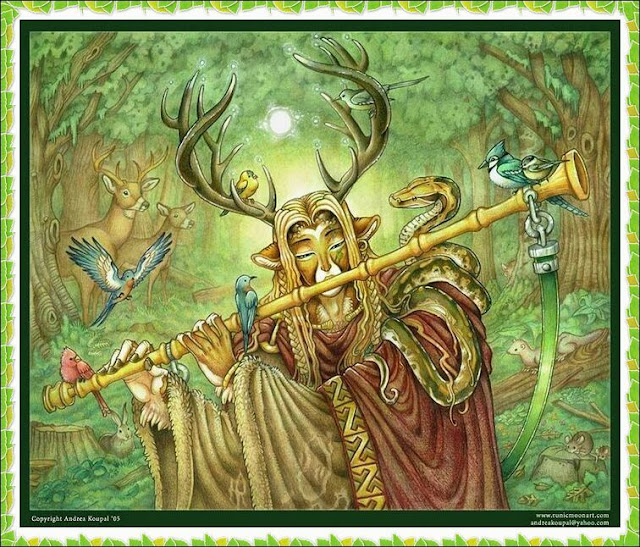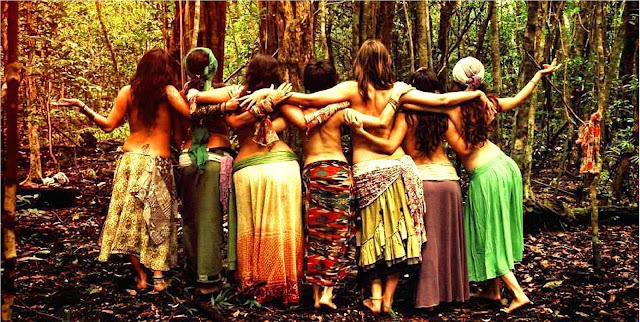Paleopaganism, Mesopaganism and Neopaganism? Wicca?
Wicca is a religion of mysteries and veneration of nature based on the beliefs the concepts of Paganism.
The broad and general term known today as Paganism has its origin in pantheistic, animistic, totemic forms of spirituality, with shamanistic and most often polytheistic bases centered on the forces of nature.
Paganism can't be considered a religion, but rather the central pillar that encompasses the way of life, the spiritual and philosophical concepts in which all religious expressions focused on nature support and develop their foundations. Thus we might say that any earth-centered religion that does not believe in the Holy as a transcendent and non-monotheistic form is Pagan.
Scholars subdivide Paganism as follows: Paleopaganism, Mesopaganism, and Neopaganism.
Paleopaganism
It's the general term used for the intact, nature-centered tribal faiths found in ancient Europe, Africa, Asia, and polytheistic Americas. Paleopaganism is practically non-existent in modern urban societies and is only found, perhaps, in regions distant and untouched by the presence and influence of contemporary man. |
| Cernunnos, Lord of Beasts |
Mesopaganism
Neopaganism
It is the current modern terminology used for a variety of movements, usually unorganized, initiated since the 1960s, with ancient roots or not. In this classification of Paganism are included all those who tried to create, recreate, revive or continue the practices of Paganism of different cultures. This category of Paganism includes ideas and attempts to eliminate inappropriate concepts, as well as attitudes and practices, of monotheistic, dualistic and atheistic religions and worldviews.It can be considered a movement initiated by contemporary society to reestablish the worship of nature. This definition may include any attempt, ranging from reconstructionist movements to nonreconstructionist groups such as Neodruidism and Wicca.
Thus, Wicca is a Neopagan religion, an alternative name given to Modern Witchcraft, which is inspired by the Paganism of the Ancient Peoples of Europe and which proposes to re-celebrate the Mother Goddess and the Ancient Gods of nature, creating and recreating the rituals of ancient cultures where these Deities were once celebrated.
Wicca is the revival and modern survival of this Ancient Religion based on Earth and its manifestations. Its spiritual roots lie in the Neolithic and Paleolithic Europe, at a time when primitive peoples worshiped the Mother Goddess as the great creator, nurturer and sustainer of life.
Check our Wicca and Spell Books!











0 comments: